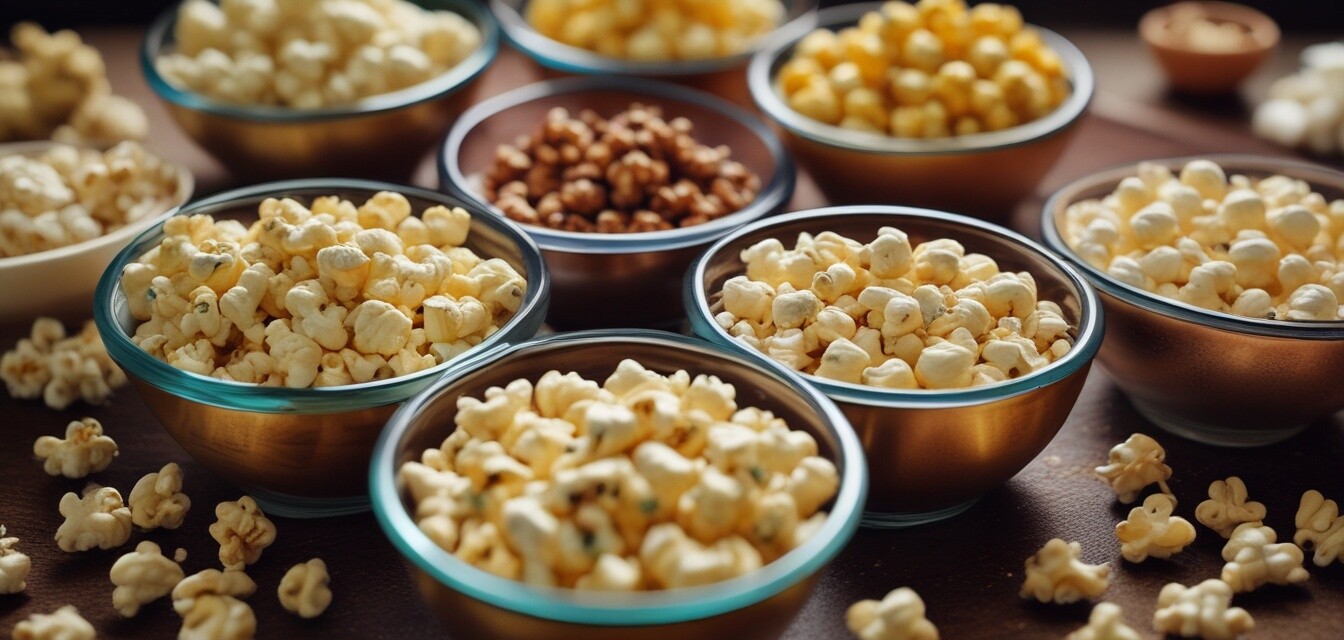
How different oils affect popcorn flavor and texture
Key Takeaways
- Different oils impart unique flavors to popcorn.
- The type of oil can affect the popping process and texture of the popcorn.
- Health benefits vary between oils, influencing your choice.
- The ideal oil for popping can enhance your overall popcorn experience.
Popcorn is a beloved snack across the globe, but have you ever considered how the choice of oil impacts its flavor and texture? In this article, we will dive into the various oils used in popcorn preparation, explore their effects on taste and health, and discuss how they influence the popping process. Join us as we investigate the science behind choosing the right oil for your perfect popcorn experience!
Understanding oil types
Not all oils are created equal when it comes to popcorn. Different oils provide distinct flavor profiles and cooking characteristics. Below is a comparison of some popular oils used for popcorn making.
| Oil Type | Flavor Profile | Popping Temperature | Health Benefits |
|---|---|---|---|
| Canola oil | Neutral | 400°F | Low in saturated fats, heart-healthy |
| Coconut oil | Sweet, nutty | 350°F | Contains medium-chain triglycerides |
| Olive oil | Fruity, grassy | 375°F | High in antioxidants, heart-healthy |
| Peanut oil | Rich, nutty | 450°F | High smoke point, good for frying |
| Avocado oil | Mild, buttery | 520°F | Loaded with healthy fats and nutrients |
Flavor enhancement
The choice of oil can significantly enhance the flavor of your popcorn. Here’s a brief overview of how different oils change the taste experience:
- Canola oil: Its neutral flavor allows the natural corn taste to shine, making it a good base oil for seasoning.
- Coconut oil: Popular in movie theaters, it adds a sweet, tropical note that many people love.
- Olive oil: This oil brings a fruity, grassy flavor that can elevate gourmet popcorn dishes.
- Peanut oil: Adds a rich, nutty flavor that complements added seasonings well.
- Avocado oil: Its mild but buttery taste enhances any seasoning while providing health benefits.
Texture matters
The oil not only impacts flavor but also affects the texture of the popcorn. Here are some ways that oil choice can influence the final product:
- Crispiness: Different oils have varying abilities to create crispiness when popped. Higher smoke points can lead to more crisp texture.
- Mouthfeel: Oils like coconut or avocado can add a creamier mouthfeel compared to a lighter oil.
- Coating: Oils with higher viscosity may coat the popcorn better, improving overall flavor distribution.
Popping techniques
The technique of popping is just as crucial as the oil used. Here are some popular methods:
- Stovetop popping: Using a heavy-bottomed pot with a tight lid allows for even heating and popping.
- Air poppers: They use hot air and require minimal oil, resulting in a lighter snack with fewer calories.
- Microwave: You can use microwave-safe containers with a bit of oil to enhance flavors without hassle.
For detailed guidance on different popping methods, check out our buying guides.
Health considerations
When it comes to health, some oils provide more nutritional benefits than others. Here’s a brief overview:
- Canola Oil: Low in saturated fat and high in omega-3 fatty acids.
- Coconut Oil: Contains healthy saturated fats, but should be consumed in moderation due to high fat content.
- Olive Oil: Known for its heart-healthy properties and high antioxidant levels.
- Peanut Oil: Rich in monounsaturated fats, promotes heart health but watch the serving size due to calories.
- Avocado Oil: Excellent for cooking due to high smoke point and offers numerous health benefits.
Conclusion
The oil you choose for popping popcorn can dramatically affect both the flavor and texture of your finished snack. By experimenting with different oils, you can make popcorn that caters to your taste preferences and health objectives. Whether you enjoy the natural flavor of canola oil, the added sweetness of coconut oil, or the rich nuttiness of peanut oil, the options are endless. Discover your personal favorite oil and enjoy your popcorn like never before!
Pros
- Variety of flavors and textures depending on the oil.
- Health benefits vary, allowing for healthier choices.
- Easy to experiment for a unique flavor experience.
Cons
- Not all oils are healthy; moderation is key.
- Some oils may alter the original popcorn flavor unexpectedly.
- Higher-quality oils can be more expensive.
To explore more popcorn-related content, visit our Popcorn Science section for fascinating articles!